Cultivating the next generation of research talents, Taiwan Tech organizes scientific visits, inviting high school students to get hands-on experience in making sustainable batteries.
In order to provide young students with the opportunity to get close to science and exposure to professional research environments, Taiwan Tech's Sustainable Electrochemical Energy Development Center (SEED) responded to the National Science Council's "Kiss Science - Opening the Doors to Science, Keeping Youth Engaged" initiative. Led by Professor Bing-Zhao Huang and Professor Wei-Nian Su, the research team employed practical scientific demonstrations and compelling explanations to guide students from Songshan High School in the assembly of water-based batteries. The primary objective was to inspire their interest in science, and Professor Bing-Zhao Huang also hopes that through this activity, students can gain a deeper understanding of the industry and cultivate the next generation of research talents.
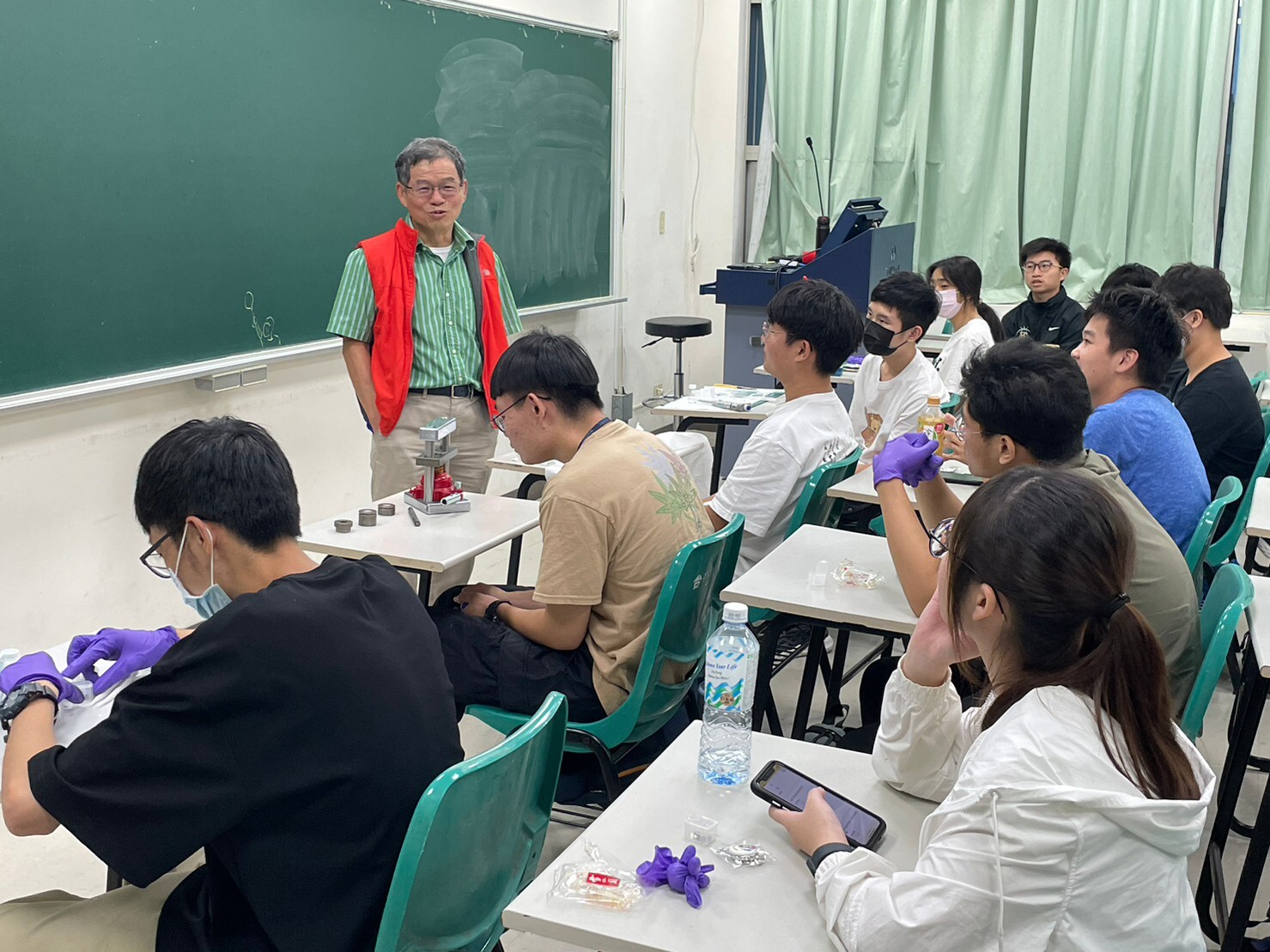
Professor Bing-Zhao Huang of the Sustainable Electrochemical Energy Development Center at Taiwan Tech believes that through these visiting activities, high school students can gain a better understanding of the industry and cultivate the next generation of research talents.
The Sustainable Electrochemical Energy Development Center at Taiwan Tech focuses on two key areas of development: "battery energy storage" and "hydrogen energy conversion." Combining theoretical and analytical techniques, the center is dedicated to researching hydrogen energy and green electrochemical systems to enhance energy efficiency and battery safety. The present initiative aligns with these goals and includes expert-guided tours, popular science lectures, and hands-on DIY workshops, guiding students step by step in exploring the mysteries of sustainable batteries and electrochemical fields.
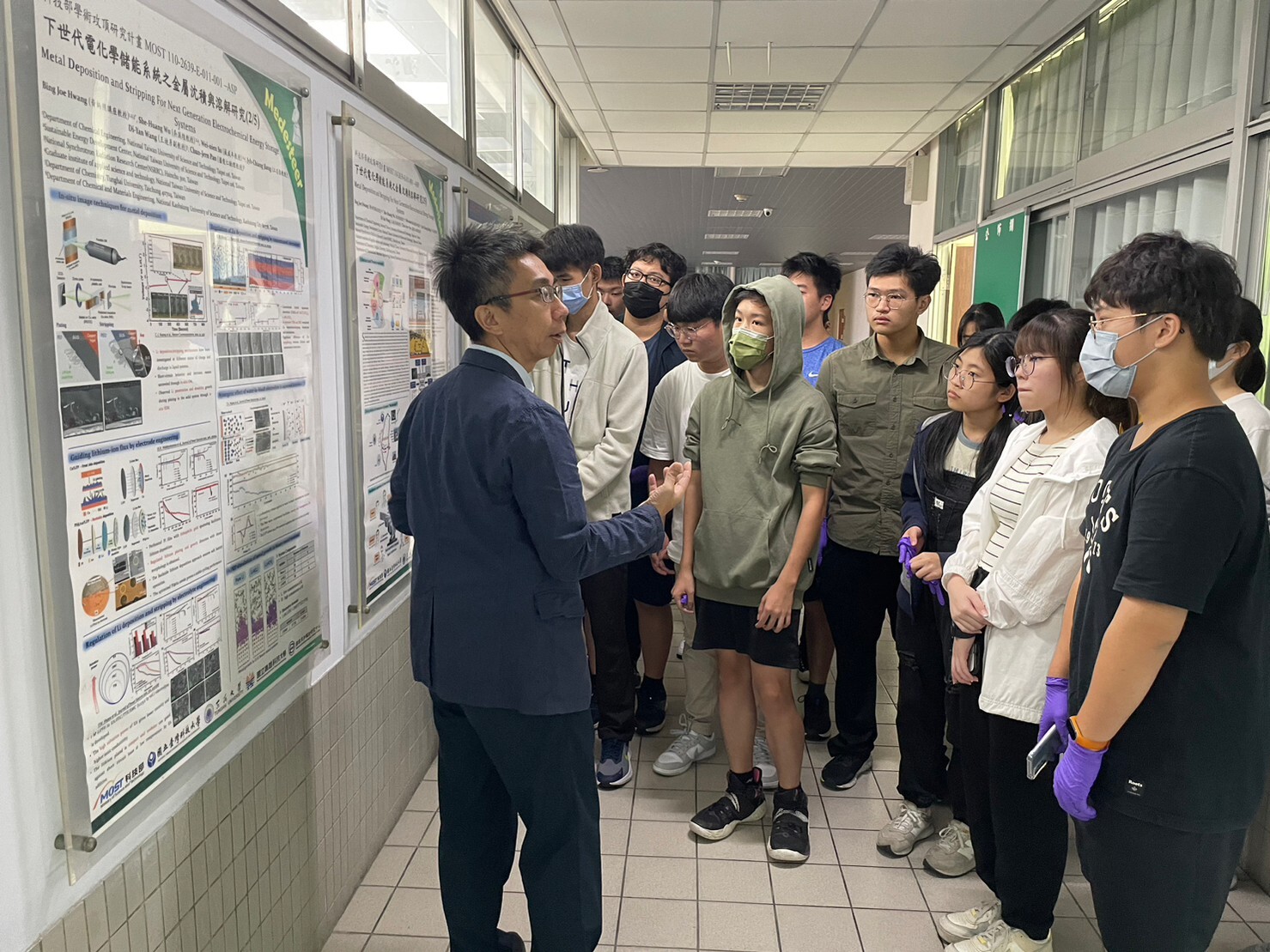
Professor Wei-Nian Su (on the left) provided a detailed introduction to the research achievements in electrochemical energy storage systems to the students.
In an effort to ignite the students' interest in science, the Sustainable Electrochemical Energy Development Center organized a "DIY Water-Based Sustainable Battery" activity. This activity systematically guided the students through the assembly of water-based batteries, using materials such as zinc foil, lithium iron phosphate, and double saltwater electrolytes, to create environmentally friendly battery keychains that emit light. The participating students from Songshan High School expressed that witnessing the keychains they assembled actually light up gave them a profound sense of accomplishment. They also expressed their desire to participate in future events, further enrich their knowledge, and apply it to their daily lives.
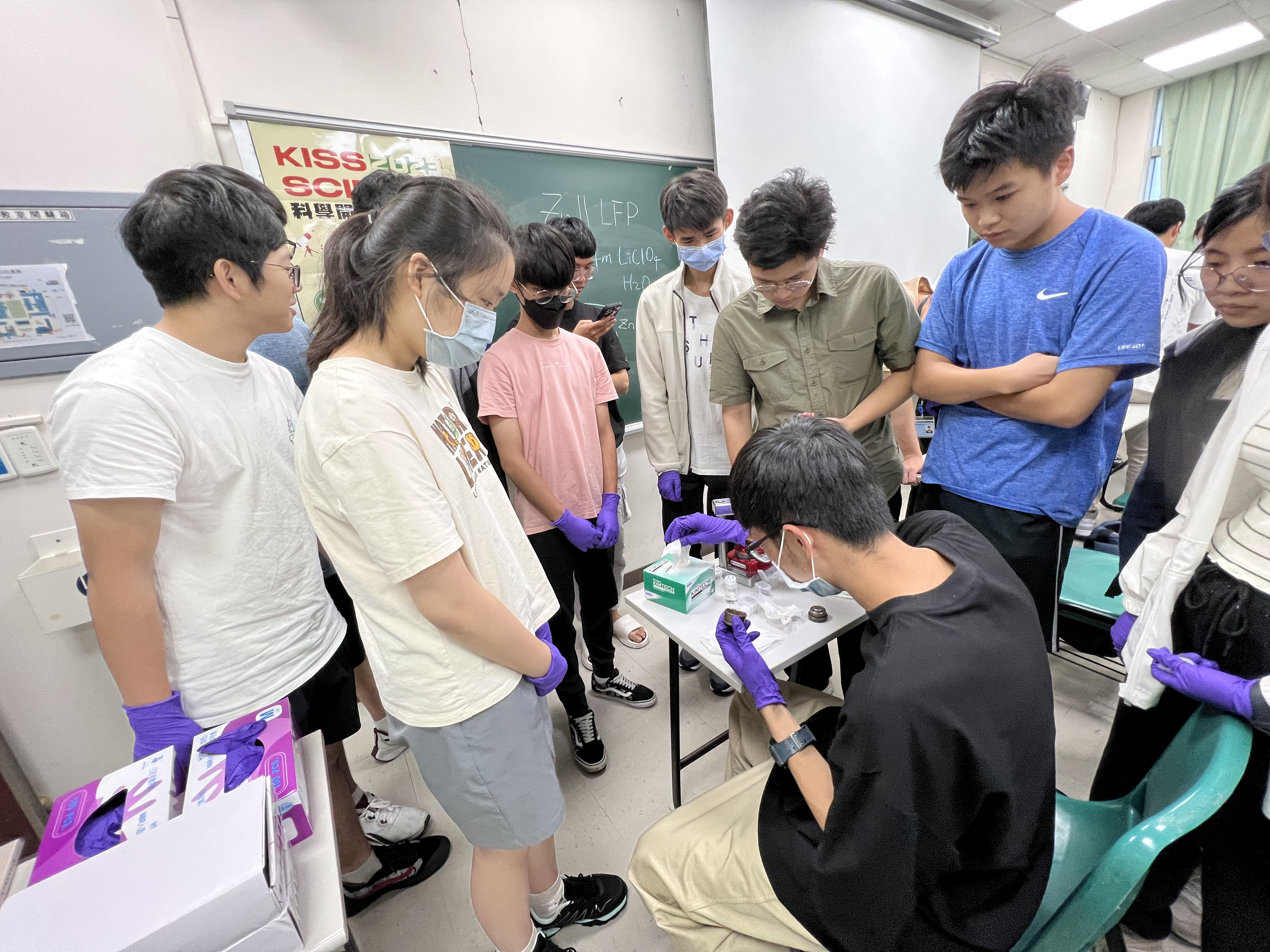
The students from Songshan High School attentively listened to the explanations and demonstrations of the "DIY Sustainable Water-Based Battery."
Professor Wei-Nian Su mentioned that interacting with high school students was a novel experience. It was also the first time the SEED Center had organized such an event. He emphasized the importance of establishing strong foundations and sparking the interest of young students in energy materials, as the center strives to become a better and more internationally competitive research team while preparing for talent cultivation.
On the day of the event, the instructional responsibilities for the DIY workshop were undertaken by Guan-Xian Li, a second-year student at the Graduate Institute of Applied Science and Technology. He observed that the students possessed limited prior knowledge concerning sustainable energy and batteries. Nevertheless, their unwavering engagement and enthusiasm during the practical exercises were notable. Guan-Xian Li humorously reflected, "Watching them conduct experiments reminded me of my own early experiences."
Teaching Assistant, Pei-Xing Jia, a first-year graduate student at the Graduate Institute of Applied Science and Technology, praised the outstanding performance of the Songshan High School students. They displayed a strong curiosity toward unfamiliar equipment and devices, stating, "To receive explanations during a short teaching session and perform so well after seeing a demonstration only once is truly impressive." Pei-Xing Jia expressed that having the opportunity to visit a professional laboratory during high school is quite rare, and he believes that everyone gained valuable insights. He also jokingly remarked, "I wish I had such opportunities when I was a student."
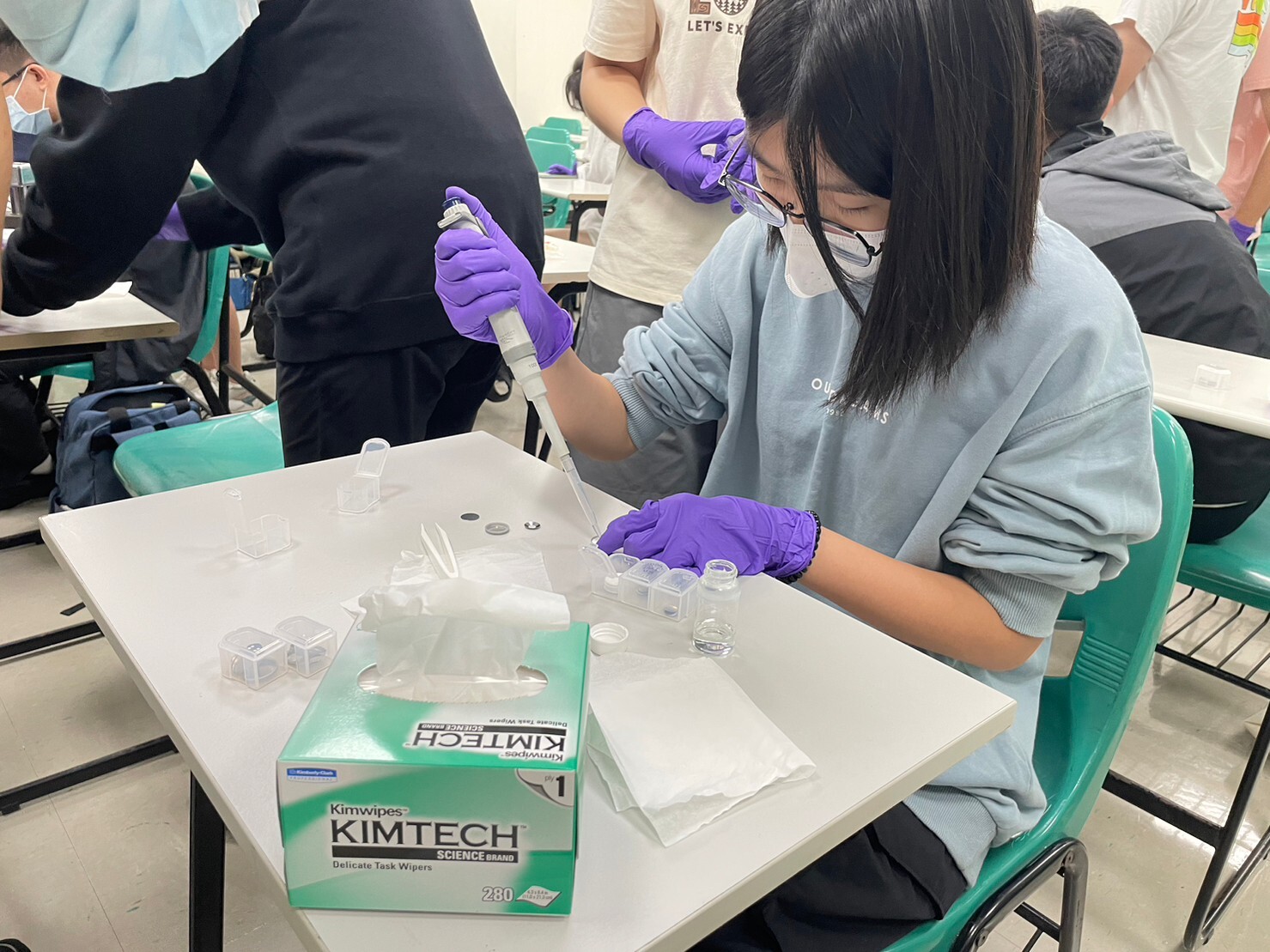
The students from Songshan High School took it upon themselves to assemble keychains with water-based sustainable batteries using professional-grade equipment, and they were even allowed to take these keychains home as mementos.
The National Science Council actively promotes science education initiatives in related fields, and its "Kiss Science - Opening the Doors to Science, Keeping Youth Engaged" initiative is now in its fifth year. This year, it gathered representatives from industry, government, academia, and research sectors to open up 106 locations across Taiwan, hosting over 370 events. The aim is to provide young students with an opportunity to gain a more concrete understanding of the current state and future trends of research institutions, both domestically and internationally, through their participation in these activities. This, in turn, allows them to enhance their knowledge and broaden their perspectives.
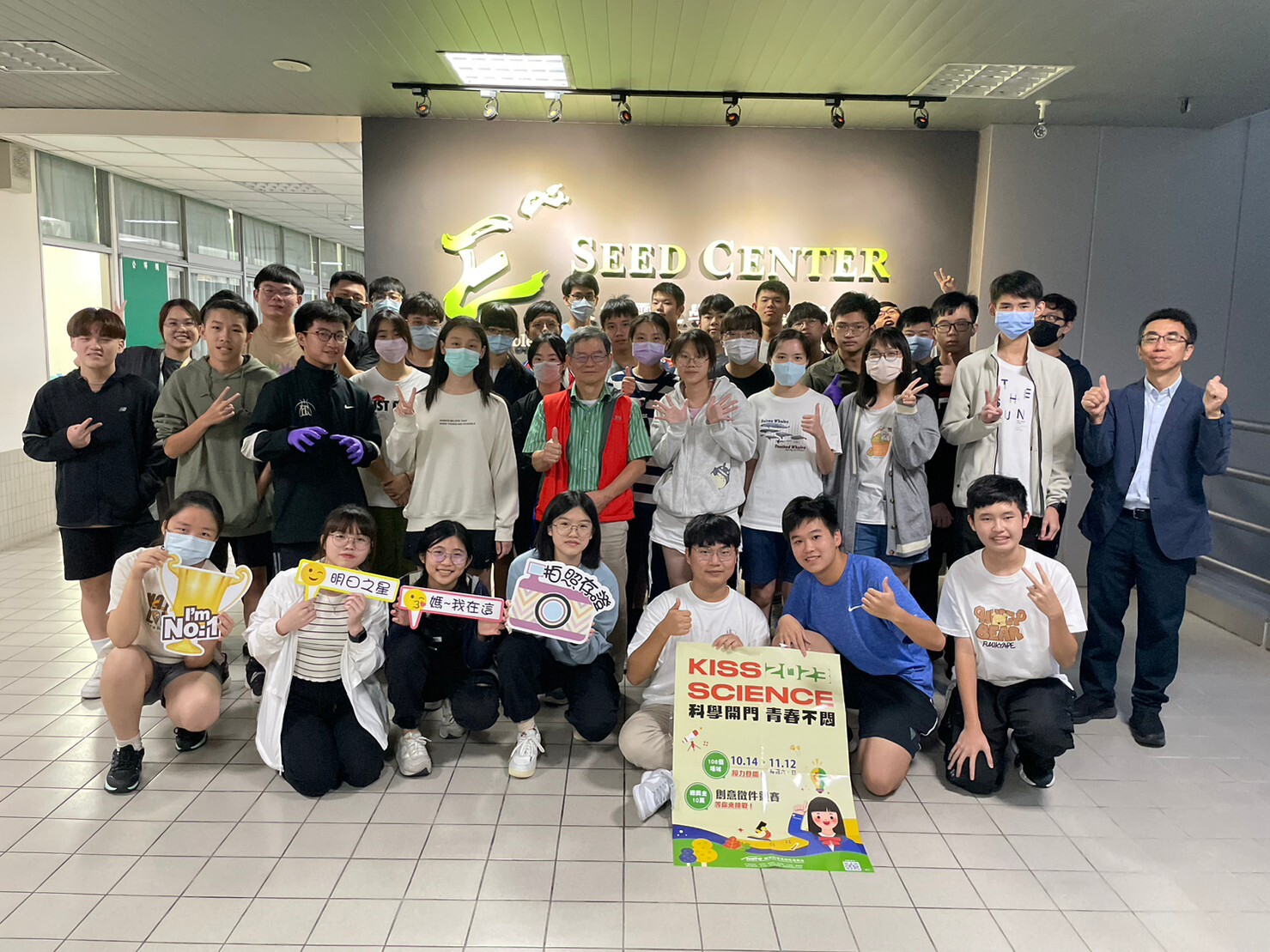
Group photo.
